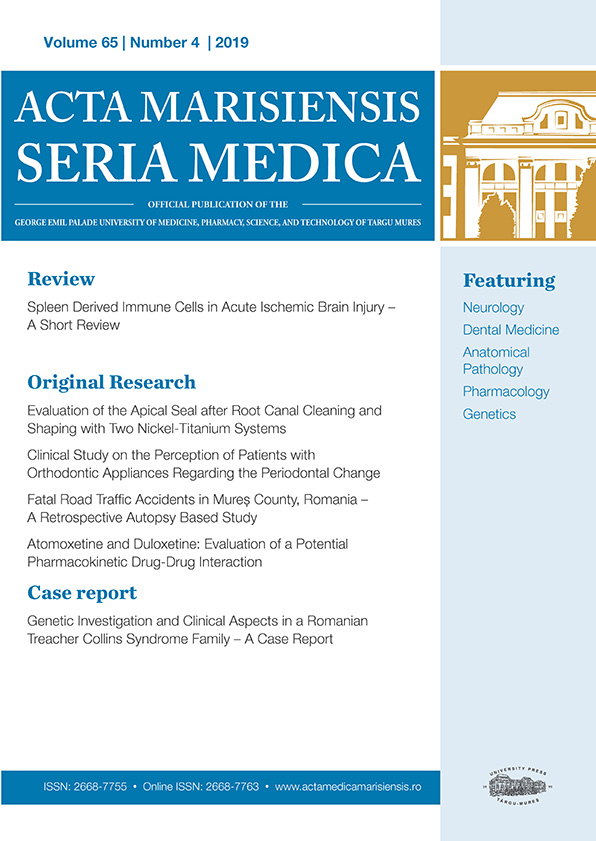Testosterone deficiency is associated with clinically relevant depression symptoms
DOI:
https://doi.org/10.2478/amma-2023-0008Keywords:
testosterone deficiency, depression, anxiety, stressAbstract
Objective: To investigate the association between testosterone deficiency and depressive and/or anxiety symptoms.
Methods: A cross-sectional study was conducted at the urology outpatient clinic from Ludus County Hospital. A set of validated questionnaires ((International Prostate Symptoms Score (IPSS), Depression Anxiety and Stress Scale (DASS-21), Zung Self-rating Depression Scale (Zung SDS)) were self-administrated. Inclusion criteria: age > 40 years. Exclusion criteria: any relevant psychiatric, cardiovascular or cancer comorbidity. Statistical analyzes were performed using the statistical software Statistical Package for Social Sciences (SPSS, version 23, Chicago, IL, USA).
Results: From the total of 55 subjects included in the study, 23 (41.8%) had testosterone deficiency (TD). Most subjects were from the 60-69 age decade, 23 subjects (41.8%), and the mean age was 59.3 (SD 9.03) years. Eleven (20%) patients had depressive symptoms according to the depression subscale of the DASS-21, of these, 7 had mild symptoms and 4 according to Zung SDS. TD was associated with DASS-21 global score, p=0.021, and with DASS Depression subscale, p=0.047.
Conclusions: Patients with testosterone deficiency are presenting symptoms of depression. Therefore, these patients need a multi-disciplinary approach that should include a psychological evaluation prior to any decision-making regarding further management.
Downloads
Published
How to Cite
Issue
Section
License
Acta Marisiensis Seria Medica provides immediate open access to its content under the Creative Commons BY 4.0 license.









